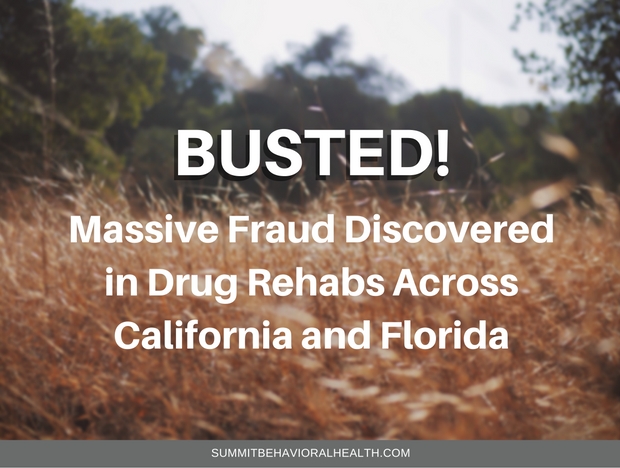Treatment Centers Found Cycling Addicts Through Programs For Profit
With the growing problem of opioid addiction across the United States, there are many individuals who are struggling with addiction and in need of treatment. While most rehab programs that provide professional treatment are legitimate and focused on delivering quality care, there are sadly some that are profiting off addicts and their insurance policies.
It’s an unfortunate reality that a few treatment providers in areas with high numbers of addicts, such as Florida and California, are more focused on generating profits than supporting long-term recovery.
Private Insurance Companies Are Feeding The Fire
Fraudulent claims for addicts escalated tremendously after the passing of the 2008 Parity Act and the launch of Obamacare, which enables nearly every U.S. citizen to have access to recovery programs. Less-than-legitimate treatment centers began using “marketers” who act like headhunters to find addicts and bring them into their facilities. Supposedly, these marketers can make $500 per person they bring in.
With each new addict that enters detox treatment, the treatment facility gets paid through insurance. Payment continues through detox, rehab and outpatient treatment. In other words, there’s plenty of financial incentive in keeping patients in these programs and unfortunately even relapsing. In a story from the online source BuzzFeed News, some of these marketers reportedly give “recruits” money for drugs so they test positive on urine tests when checking into treatment. Others even provide incentives, including drugs, to keep them relapsing over and over again.
Cracking Down On Rehab Fraud
Unfortunately, there are currently few resources to track marketers or the facilities who are using them to increase profits from insurance claims. Even if there were more of an effort to identify marketers, prosecutors would have a difficult time in court because the victim is also a co-conspirator.
In some cases, addicts are being implicated by getting kickbacks in exchange for insurance information. Some treatment facilities are offering addicts perks like cellphones, gift cards and free rent if they agree to sign themselves into a treatment program. This is a violation of anti-brokering law. Some of these facilities charge insurance companies hundreds of dollars per day, per patient.
Some marketers are generating big incomes brokering these deals. A few are making enough to open their own treatment facilities where they can profit even more. And, the cycle continues to perpetuate.
Stuck with bills generated by these scams, some insurance companies are pulling out of state health exchanges. Nationally recognized insurer Cigna is one such company that recently chose to pull out of the Florida health care exchange, largely because of this growing problem. It’s likely that others will follow suit if a solution isn’t found.
Validating A Treatment Facility
If you’re looking for a treatment center, it’s wise to research the validity and quality of the treatment facilities you’re considering. Not all are created equal.
Here Are A Few Things To Check Out:
- Program Accreditation and Licensing: Make sure the program is accredited by the state it is located in. The professional staff should also be licensed, well-trained addiction specialists and treatment professionals.
- Success Rate: Legitimate treatment facilities will have some statistics on their success rates, ideally provided by a third-party agency.
- Types of Services to Prevent Relapse: A qualified treatment center should have an aftercare program or at least valid referrals to other recovery services and support groups in the community.
Choose The Right Program
Do you have questions on how to choose the right treatment program for yourself or a loved one? Call to speak to an addiction specialist now. We pride ourselves on being above the curve and doing everything the right way. Our clients come first, and it shows with our success rate and stories.

